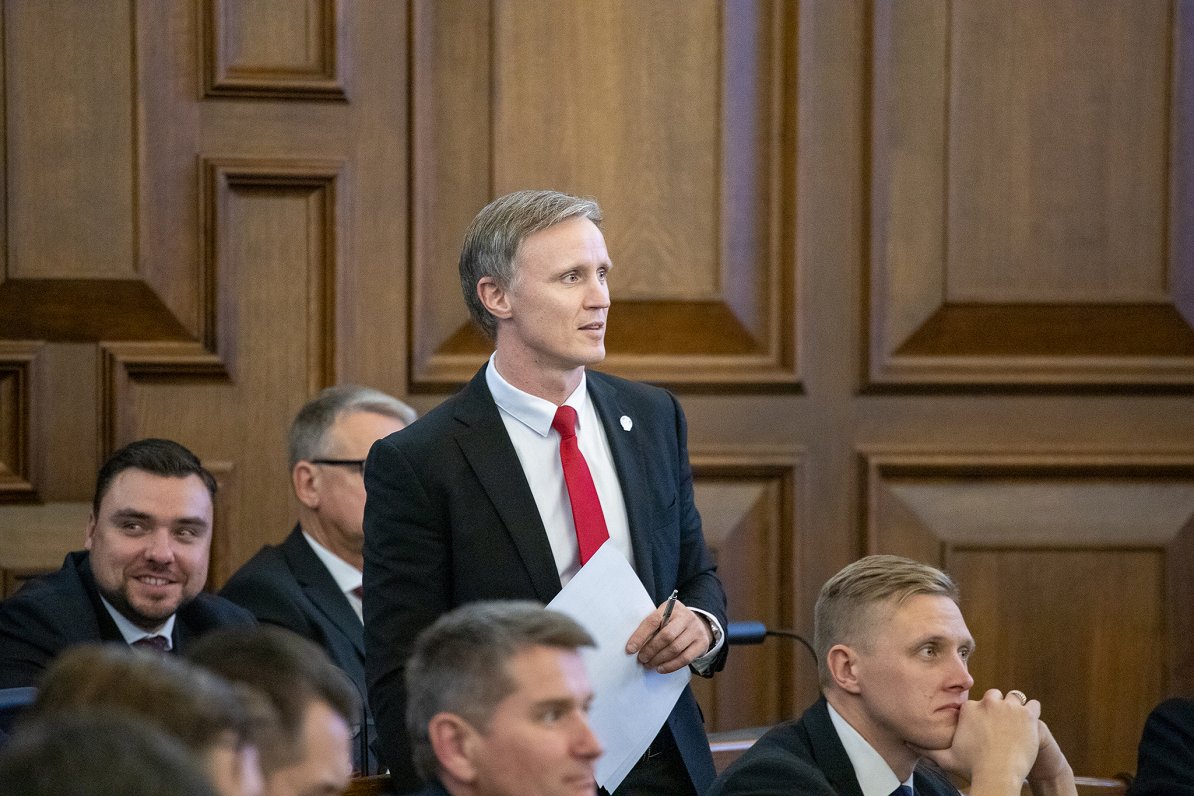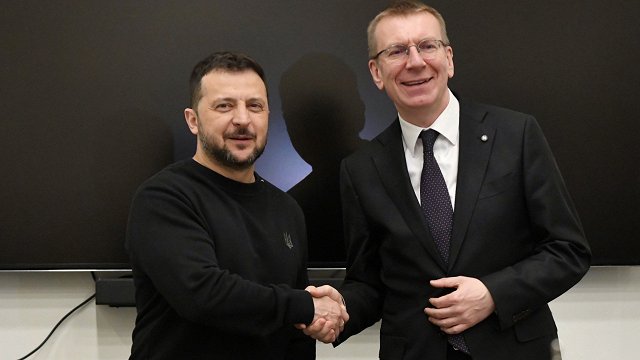His citation of the famous invitation of the defenders of Ukraine's Snake Island was widely shared on social media with most commentators agreeing that it represented a refreshingly direct way of getting to the point on Russia's brutal and unprovoked war in Ukraine.
Last week, I received a surprising letter from @oscepa Secretary General. I'm publishing it in the interest of max transparency at a time when the administrative heads of @oscepa seem to be interested in the exact opposite. https://t.co/LApTtAwfHW
— Rihards Kols (@RihardsKols) March 10, 2023
However, now Kols is at the center of another OSCE controversy over separate comments in which he mentioned Ms. Daria Boyarskaya, Head of the OSCE PA Vienna Office and a Russian national.
Writing on his blog, Kols says:
"Last week I received a letter from Secretary General Montella expressing his dissatisfaction with some of the comments I made during Winter’s Meeting — Standing Committee session on February 24. While I welcome advice and a diversity of opinions, the Secretary General has even alluded that my comment that he has quoted may warrant legal action, even criminal prosecution. Allegations such as this, in my view, are an outrageous assault on the basic principles of parliamentarianism and are intended only as a tool to intimidate. Secretary General Montella has decided not to release the recording of the Standing Committee session precisely for this reason."
The text of the letter from Montella makes interesting reading, and is attached to this story in PDF form. It says:
"Upon advice from the OSCE PA legal counsel, I am writing you concerning your remarks at the Standing Committee Meeting in Vienna with regards to Ms. Daria Boyarskaya, Head of the OSCE PA Vienna Office.
"After mentioning her name, you said the following: “Similar names are Ana Chapman, Baturina – I think everyone in this room knows what I am talking about”. By this, you alleged that OSCE PA international civil servant Boyarskaya had committed offenses similar as the convicted Russian spy Chapman or the Billionaire and Financier of Putin Elena Baturina. The only “evidence” you provided is that she is a Russian national and has worked as an interpreter on the highest level.
"Not only were your remarks met with sharp criticism from the Dutch and the Spanish Delegation, but as I was informed by the OSCE PA legal counsel, they also bear potential legal consequences."
Later, the letter suggests that by naming the OSCE official in public, Kols was potentially guilty of slander and would be subject to criminal prosecution in many countries.
"These acts would be considered slander and subject to criminal prosecution in many countries. Such slander cannot be justified by someone who has not – at least – first attempted to bring his/her accusations forward through the proper channels," says Montella.
"Further, such public shaming of PA staff is a violation of the person’s fundamental rights, in particular her human dignity, which I – as her supervisor and chief executive officer of the PA have to protect. And it is most likely that it is at odds with EU and OSCE data protection, confidentiality and privacy legislation," the letter adds.
As well as the letter from Montella, Kols published the text of his reply, in which he points out that Ms. Boyarskaya has been declared persona non grata by Poland and argues that she was employed after Russia's aggression against Ukraine began in 2014.
He also says Montella's legal arguments are "mainly very vague" and that his own comments were "innocuous", but sharply criticises Montella's response, saying:
"The bare mention of possible criminal prosecutions... is an outrageous affront to all that parliamentarism and multilateralism stand for and what the OSCE parliamentary assembly supposedly stands for."
"No direct accusations were made that could be treated as defamation of libel," Kols maintains and adds that the OSCE decision to make video of the session containing the contentious material available sets a dangerous precedent and could constitute "legitimising organisational censorship".



























